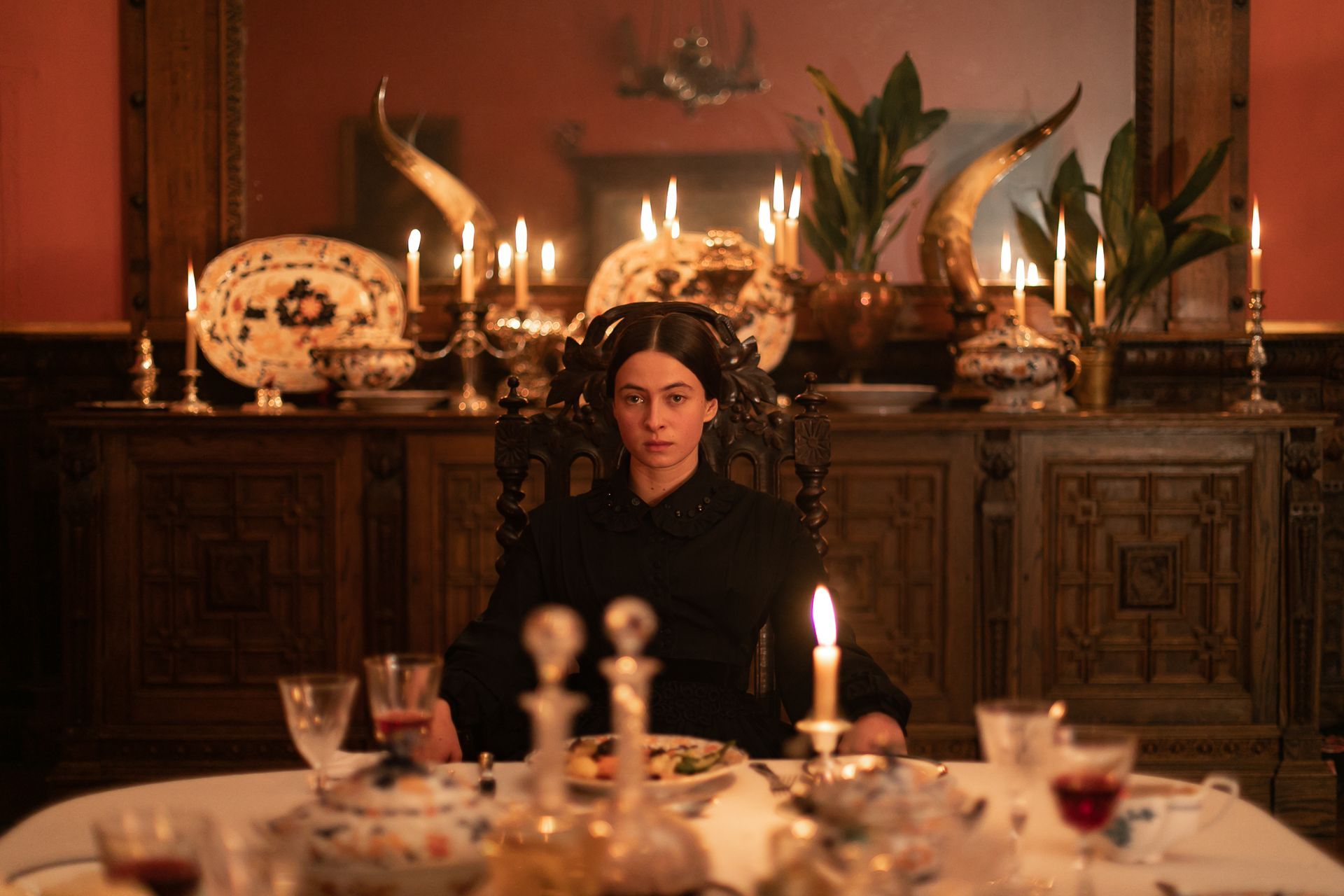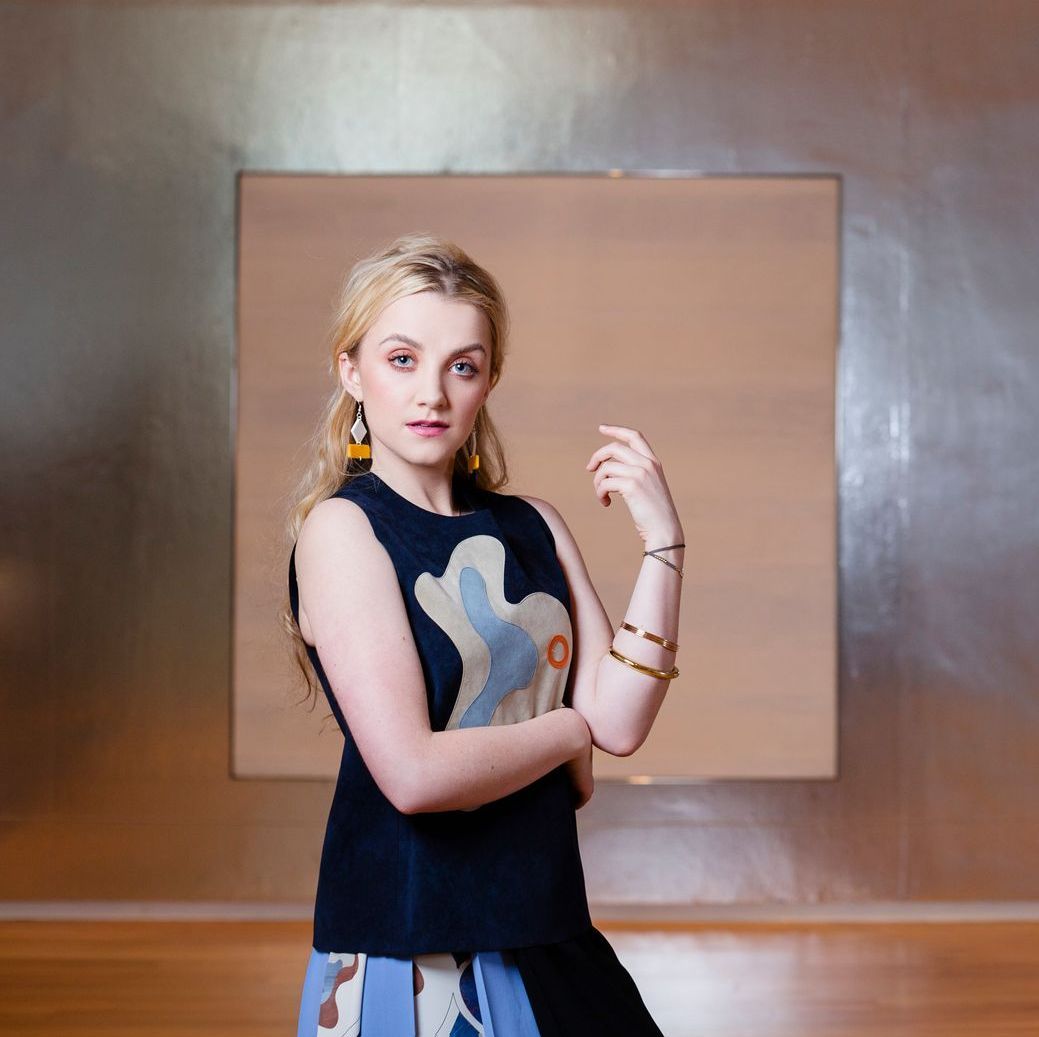NEWS
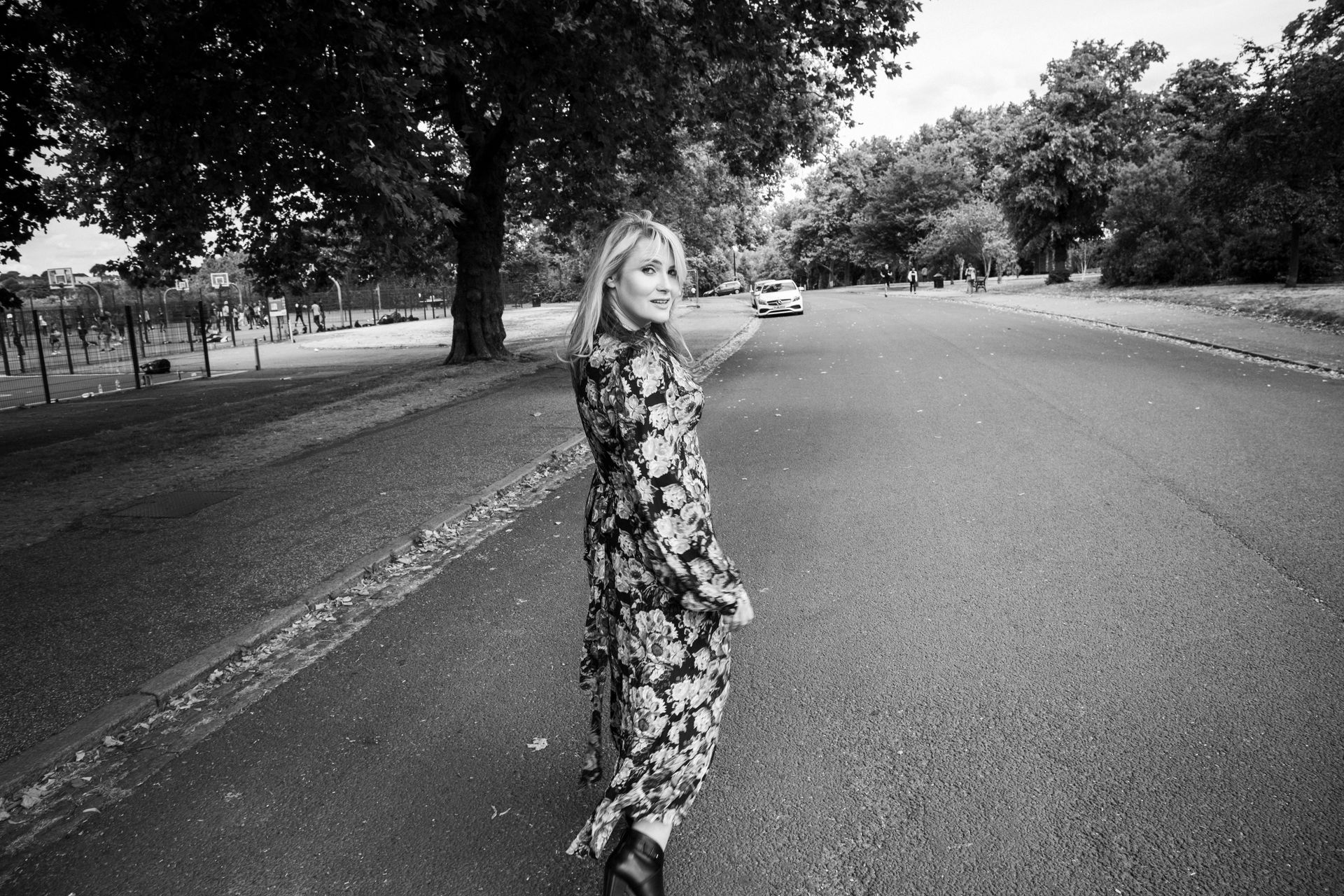
Meet Nancy Harris – the award-winning Irish playwright and screenwriter behind new TV series The Dry
Recently extended for a second season, it looks like Nancy Harris has lots planned for future episodes of her hit TV series The Dry .
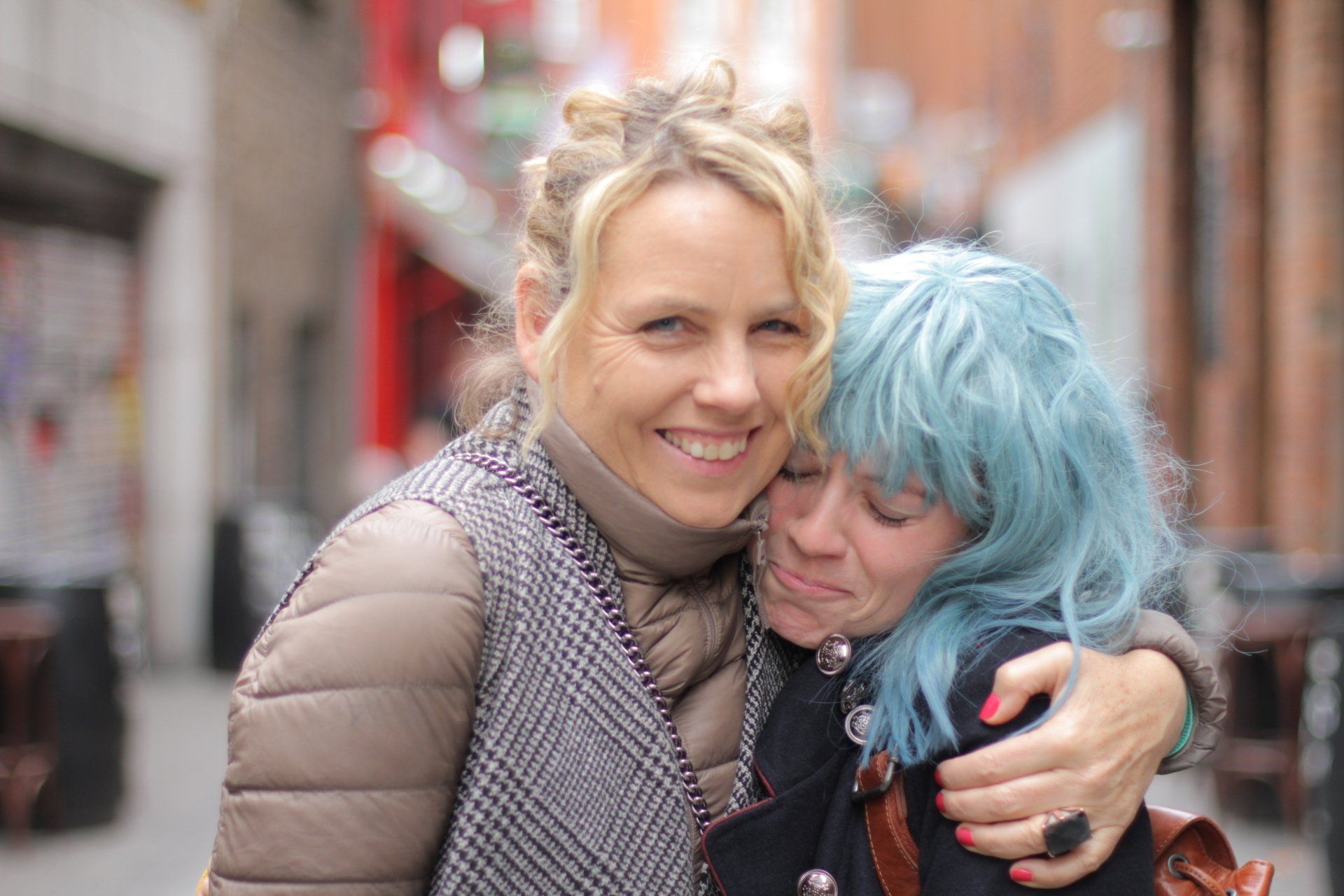
Gemma-Leah Devereux as Kate McLaughlin in The Bright Side Inspired by Anne Gildea’s memoir, I’ve Got Cancer, What’s Your Excuse? , The Bright Side , starring Gemma-Leah Devereux as stand-up comedian Kate McLaughlin, who receives a breast cancer diagnosis while also coping with her own personal inner battle, is a film like no other. Some viewers might generally shy away from movies that deal with “the C word” for whatever reason… maybe they’ve lost someone to cancer and just cannot face the reminder, maybe it’s a genuine fear they have of their own susceptibility, maybe they just want to escape from such topics when they head to the cinema. That’s all understandable. But what writer and director Ruth Meehan would really like to let audiences know is that this is no ordinary film about cancer. Yes, there are serious and sad moments, but balancing that darkness is a huge amount of light in the form of both central character Kate’s cynicism and comedy and the love and hope that surrounds her by the friendships she develops during the course of the film. You see, Kate McLaughlin wants out. She doesn’t enjoy life. Escaping is the one thing she longs to do, so when she receives a breast cancer diagnosis and is urged by her loving brother (played by the excellent Kevin McGahern – yes, that Kevin McGahern, refreshingly performing a more serious role here) to go through chemotherapy, she just doesn’t have it in her to fight but reluctantly agrees to give it just the one try. She then meets four very different women in the chemo ward – played beautifully by Siobhán Cullen, Derbhle Crotty, Karen Egan, and Barbara Brennan. Along the way, she also develops a friendly acquaintance with her local pharmacist (after their first few meetings go a little awkwardly), played by the always phenomenal Tom Vaughan-Lawlor (also in a role unlike what you may be used to seeing him in). Like many films, this one’s release was of course delayed somewhat by the pandemic, but perhaps the timing isn’t so bad – as we gradually return to the cinemas, this is just the sort of film that will give your soul the metaphorical hug it needs. “I’m really very proud of [this film], particularly the performances, especially the five women – Gemma-Leah, Siobhán, Derbhle, Karen and Barbara – and Tom Vaughan-Lawlor and Kevin McGahern,” says Ruth, who explains that the casting process was so important to achieving what she was setting out to create, starting with the casting of Gemma-Leah Devereux as the central character. “Kate looked very different in my mind’s eye, but when I saw Gemma-Leah, I just looked at her and thought, now I can make the film. I’m a big believer that every creative project has its own pulse and my job as the co-creator and director is to be the midwife of that project. It’s a very intuitive thing, you have to have that strong physical energetic emotional reaction. I just saw Gemma-Leah’s tape and said, that’s it. I knew it was an incredibly challenging role for her and for me, but I also knew the only hope of us delivering what I thought that role needed to deliver was absolute commitment and to create the space that she could find the most powerful version that she could bring to the screen for that character. The way we found the rest of the cast was similar. You need a feeling off of the actors that feels right for the part. Kevin, when I saw him, I just thought, he’s Kate’s brother; Derbhle was Helen; and Siobhán is just a stunning actor – Tony Deegan, our producer, sent me her tape; and Tom, I just thought, wouldn’t he be so interesting in an emotional role like this one, he’s such a fine actor. Our casting director Amy Rowan was amazing at casting the smaller roles. With a film, there is no ‘small role’, because every single moment is crucial, so all those smaller roles are essential. I think myself, Amy and Tony got the feeling of the film, and then Amy was able to bring forward people who match that feeling. The casting process is very long, and it’s so important, and frightening and invigorating and inspiring. On the first day of principal photography, I remember turning around and just saying to both the cast and crew, ‘Everybody who needs to be here, they’re all the right people.’ It was a great process in the end, but it is frightening because if you don’t get the cast right, you’re limiting what you can do once you turn the camera over.” The idea for the film came about following Ruth’s close personal experience with grief, resulting in a truly informed and powerful project and a chance for Ruth to face that grief head-on, and heal somewhat. “I lost both my sister and a very close friend to cancer, and that experience is life-changing. Making this film has been a huge opportunity to engage with the emotional landscape that comes with loss and grief and, more importantly, life. I came across Anne Gildea’s memoir at the airport when I was going to India, a year after my sister died. I’d been in college with Anne, and when I was reading it, I found it so refreshing because it was so honest and irreverent and funny, and that reminded me of my sister. Some of the scenes in the film are very close to home for me, but the story is a complete creation of myself and the writer Jean Pasley, and then Anne’s input with her material. I think the most valuable part for me, and I hope for an audience, is that there is an emotional truth somewhere in the space between everything that’s happening. Any of us who’ve gone through grief, there is a kind of mystery behind it all, and somehow engaging with that mystery in a way that is accepting of it rather than constantly trying to understand what’s happening – What’s life? What’s death? – this film has helped me negotiate that territory.” Given the subject matter is so close to home, how did directing this film compare to other projects Ruth has worked on? “First of all, I think Jean and I had a very good creative chemistry, even from a storytelling point of view. We both have the same sense of when something is good or not. And it’s a story that is not my story, but some of the things that hopefully make the story powerful for people are leaning on the understanding that I might have of some of the highs and lows in the film, and Jean would have that as well, and so would Anne. The writing took us a couple of years but it always felt like it was coming closer and closer. I directed a lot of documentaries with a wonderful producer Peadar King called What in the World? about poverty and globalisation, and we were telling stories of unbearable poverty, so it might have been a mine in Bolivia, or child laborers in India… I think I learned to have this capacity to engage with emotional pain, and tell a story. And you’ve got the craft skill part of your brain that’s going, ‘you’ve got half an hour to get the shot or the scene’, you’ve got technical things that are happening in your head that are all about the art form. Where is the camera? Is this the right angle or shot, or the lighting… You’ve got all those things that one part of your brain is operating 100 per cent minding all of that. And the other part is aware that there is something incredibly nuanced or emotional that is important to witness, and be captured. There were emotional scenes [in The Bright Side ] – like the scene in the sea; I was in the sea and that thunderstorm hit, and it was like the world was grieving with me. I let go of years of grief in that scene – I just was bawling crying in the sea with Gemma-Leah, and we were laughing and crying… it was really a mythic kind of moment. The film was a living thing to me. I wasn’t in that moment trying to be professional, I was fully aware that I was releasing years of grief that I was feeling, and I’m a human being feeling that. After I shot it, I was actually going, oh my god, I’m heartbroken.” But as stated earlier, this is a film with a lot of light to it too. “Don’t be afraid that you’ll have a tough time at this film,” assures Ruth. “I’d like to think that it is, number one, engaging. I feel those women and Tom created a lot of love in the bonds and reality and pain that is, I would hope, a fulfilling experience to go to the cinema for. And I totally understand people feeling that they’ve been frightened and isolated and shocked and worried [this last year-and-a-half since the start of the pandemic], and I see The Bright Side as tracking a character with a roadmap out of despair, out of darkness, and through friendship, and through fun, and that’s really important to me as well. My sister had such a great sense of humour. And I know humour can be a crutch – that’s one of the things in the film; Kate has to stop with that in order to really feel properly – but it is also such a medicine.” Once you’ve seen this film, you may then wonder what other works of Ruth’s there are out there to enjoy, so are there other projects in the pipeline we can look forward to? “Yes, I’ve been working on a TV series and two features; one is an amazing story about Lady Mary Heath. I worked on the documentary series called Herstory ; I wrote them with Rachel Lysaght. And there was an Irishwoman, Lady Mary Heath, who flew from South Africa to Croydon in the 1920s. She was the first woman to fly solo and she married very wealthy men in order to get planes, and she was just a larger than life character, so I’ve been working on a story about that. And then I’ve written an original – it started off as a web series but I think it might be actually turning itself into a feature film; it’s another comedy drama. And there’s a TV series I’ve been developing as well, so lockdown has been a great time to put together a little slate. My aim is to continue trying to get my own work off the ground, and then also really seeing what stories there are that I could also direct because writing takes a long time. I’m also interested in directing stories that would be a good fit for me – you kind of get to know what you think your area is or your voice or your capacity.” Just like the rest of us, Ruth is very much looking forward to getting back out to enjoy the arts again. So what’s on her cultural agenda? “I’m really delighted that there are so many films by female Irish writers and directors that are coming out this autumn – Herself , co-written by and starring Clare Dunne; Wildfire , written and directed by Cathy Brady; and Deadly Cuts , written and directed by Rachel Carey, which was shot by JJ Rolfe who did a great job shooting The Bright Side . So that’s really inspiring. What I’m writing at the moment is about a playwright, so I look forward to going to plays again. I went to The Sparks Brothers documentary, which was just brilliant – you’re just watching this explosion of creativity from these two musicians, and just watching other people’s freedom to make stuff is inspiring. If you’re trying to create something, I think you’re always absorbing inspiration because it’s energy from anywhere that you see it. At the moment, I’m reading The Overstory by Richard Powers. It’s so interesting. It’s about trees, but the writing in it is so incredibly poetic and evocative and visual. I think that’s what I find fascinating when I’m absorbed in art or literature or music is where it’s coming from in the people making it.” If time and money were not a factor, what would Ruth love to do? “What I’m doing. I’ve discovered that writing, even though it’s the most difficult part of the process, is something that I love, even though it’s challenging. And to live in a country like Ireland, which is supporting people to write and make film… I would love to continue to have that relationship with my own creativity. You’re digging down to find the right stories that have a strong pull for you, and then finding a way to bring them out into the world. It is about money to a point, but I haven’t any aspirations to go and make blockbusters. It’s the resources – how to get the resources to get the crew and the cast and the time to make the little piece of magic you want to make. That’s really my dream.”
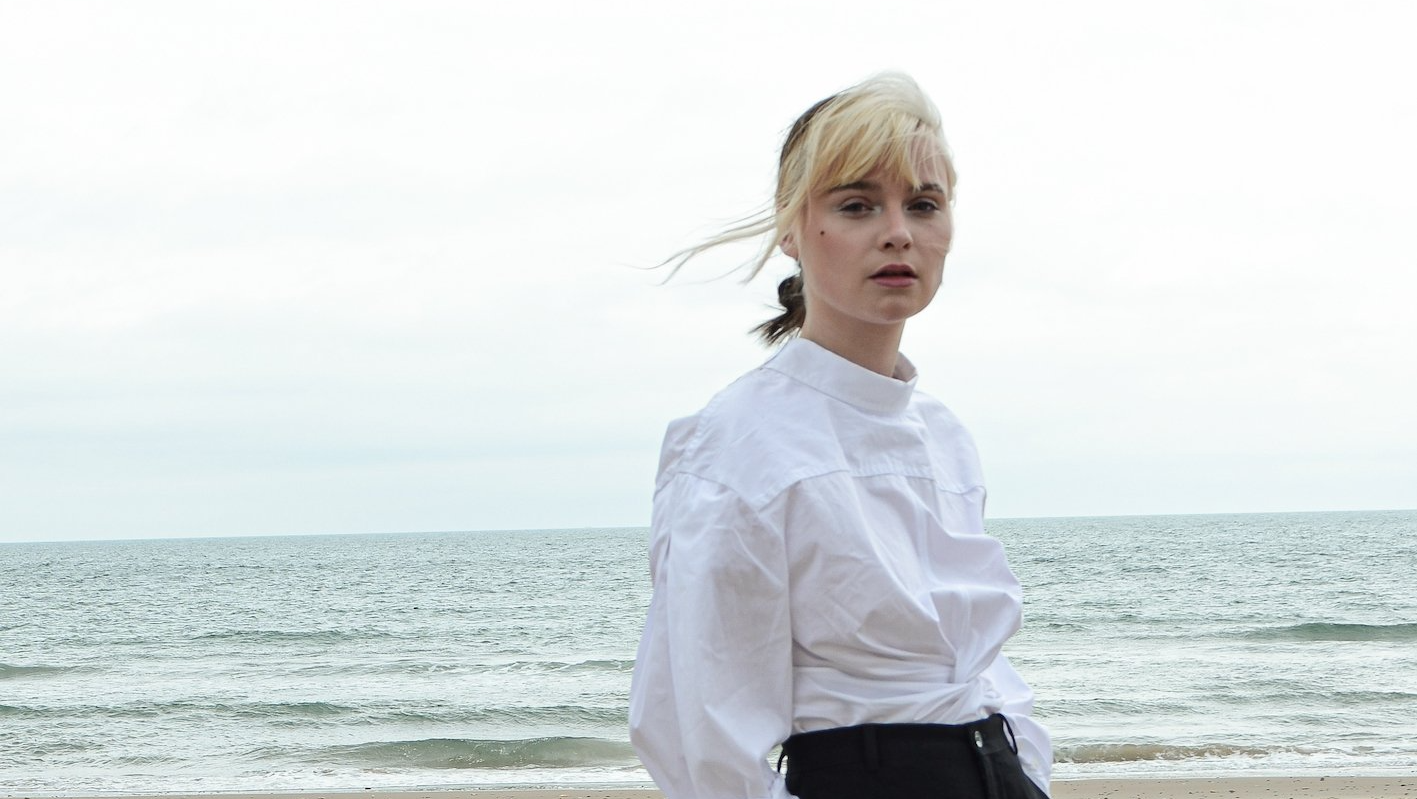
Tell me about Dating Amber – it looks like you, your co-star Fionn O’Shea, and the rest of the cast must have had a lot of fun making this film. It was a bit like lightning in a bottle. From the first [script] reads, when I met Fionn, we knew instantly that we would be friends. So it was really class to be able to do [the film] with him. We had a lot of rehearsal time before the film started with the director [David Freyne], and really got to bond. We’re best friends now and spend all of our time with each other. We absolutely adore each other, and I think that really reflects when you watch the film. You can see how much fun we had and how much we love each other and just how much we really cared about the project. I hear you and Fionn have been isolating together during the lockdown. Yeah, we were with each other in London and then before everything went a bit crazy, we decided to come back to Ireland to isolate together. So what have you been getting up to the last 10 weeks together? We’ve been just trying to stay busy, like everybody else, trying to make our own craic – we’ve been going for runs, I cook a lot of food, we play a lot of games, and just watch an awful lot of TV and films. And watching Normal People , I hear… Yeah, we have a lot of friends in that show, and Fionn’s in the show, so we’ve been watching that. Dating Amber has a real heart, and an important message – how much do you think we need this right now? I think it’s really important right now. We’ve been talking a lot with Dave [Freyne, the director], and what’s interesting is that Dating Amber is an LGBT film that is hopeful and joyous and it doesn’t have a tragic ending, and it’s framed with hope and comedy. And I think, more than anything now, people just want to watch things that make them feel good. I realised, watching the film, that you mustn’t have yet been born in 1995, when the film is set. What surprises you most about mid-1990s Ireland and how far do you think we’ve come in the last quarter-century? Something we talked about a lot when we were making this film was that two years previous to this [1993], homosexuality was illegal in Ireland. It wasn’t like it was just still taboo – it was completely illegal just two years earlier. So when these characters were feeling these things and even saying it out loud, even just to each other – how hard that was. And actually, we were on set the day they passed marriage equality and abortion rights in the North, and it just hit us that we were making this film about these characters and it was only in 2019 that these laws, these rights were being passed. So I think sometimes it’s easy for us to sit back and clap and go, “Well, aren’t we doing brilliant?” but you can sometimes sit back and see how far we really still have to go. Amber is a real spitfire of a character. When you first read the script, what did you make of her, and what did you want to bring to the role? Reading the whole script, I just laughed so hard, and I remember ringing my agent and was like, “I really, really have to do this.” I saw a lot of myself in Amber, and I think a lot of teenage girls, regardless of their sexuality, will see themselves in Amber. It’s just that age where you think you have everything figured out, and you have all of these opinions and philosophies about life, and you think that they’re all just so right. And what’s great is she meets Eddie [played by Fionn O’Shea], and he becomes sort of a soundboard for those political ideas and philosophies that she has. How did you find mastering that accent? I actually have a lot of close friends in Kildare, so it was both really helpful and really scary. I could go to them for help, but I was like, “Man, if I don’t nail this and they watch this film, I’m gonna get a lot of slagging!” What do you hope audiences will take from this film? What we’ve talked about a lot is that it’s definitely a love story – these two characters are without a doubt each other’s first love – if it so happens that that’s platonic love – and that it’s a real teenage experience. It is a queer film, but it’s also a comedy, and queer people deserve to have their lives framed with hope and comedy; and the idea that when you find your tribe of people, things get a lot easier, whether that’s in terms of your sexuality, your gender identity or just feeling that when you find people that love and adore you no matter what, things get a bit easier. You’ve had quite a varied and busy career since finishing drama school, playing really strong characters and picking up accolades and critical praise – have you paused even for a moment? Well, now I’m being forced into a kind of pause [because of the lockdown]! But it’s one of those things – I think that especially when you get out [of drama school], you’re just eager and hungry to be doing the thing that you’ve always wanted to do and that you were working towards. I love my work. And sometimes you might be in a hard shoot and think that you really want a day off and then you get it and you’re like, “No, I want to be back.” So, I love the work, and as long as I get to keep doing it, I’ll do it. You have quite a lot of projects due for release later in the year – Bloodlands , Here Are the Young Men , Shadows – how prepared are you for the onslaught of recognition you’re bound to get? I think that’s just part of the job. I try not to think about it too much. I think it’s really lovely if people have seen your work and they think it’s good and they recognise you. That’s such a lovely thing. But the reason I don’t give it much thought is the work is the work, and as long as you focus and keep giving your best to the work and trying to find good things and bring good things to people, that’s the most important thing. When the lockdown ends, what would you like to do first? Hug my mammy and daddy. And my dog. That’s it, that’s all I really want at this moment. It’s really hard. They’re both nurses and doing an extraordinary job. Obviously, with everything happening, we’re on the phone all the time and everybody’s just so proud of each other, but all you really want is a big squeeze from your mammy and daddy. What do you hope life post-COVID-19 will be like? Do you think we’ll have all changed dramatically? I think what people will take away from this experience, maybe, is that we didn’t value physical communication as much. It’s a very incredible thing – social media and phones and computers and being able to be in touch with each other, even when we’re not physically there; but just that people understand the importance of picking up the phone and arranging to meet somewhere, even if it’s just a walk in the park or a coffee… that sometimes when we made plans and then backed out for whatever reason, that now we understand that physical touch and communication and just sitting with your friend in a park is something that’s so lovely and necessary. And I hope that we maybe put our phones away a little bit more than we did before and just go out into the world. And when things eventually do return to whatever the new normal will be, what’s your personal plan for the next 12 or 18 months? Try to work. You know, just keep working and trying to find projects that I love and that make my heart sing and that feel important and that I want to be part of, and give my best to them. I hear you’re an avid reader. What are you currently reading during the lockdown? I’m just about to start Patti Smith’s Just Kids . I’ve seen everybody’s been reading it, and it’s something that I’ve meant to read for a long time, so I’m actually going to start that today. I’m going to sit in the sun, have a coffee and just get into that. What about films, TV and music – what’s been keeping you entertained? Just recently, [Fionn and I] went back and started watching Succession . We watched that together last winter and became obsessed with it. And the other night we were like, “Oh I just wish we could watch it all over again.” And then we were like, “Well, we’ve got all the time in the world – let’s do it.” I’m also excited for a lot of new music. I’m a really massive fan of The 1975 and they’ve just released a new album [ Notes on a Conditional Form ]. And Phoebe Bridgers is releasing an album in June [ Punisher ]. Those are two artists I really love and I’m really excited to hear their new albums. Dating Amber , written and directed by David Freyne and starring Lola Petticrew, Fionn O’Shea, Sharon Horgan, Barry Ward, Lauryn Canny and Simone Kirby, is available on Amazon Prime Video. Main portrait by India Mullen, styled by Oisín Boyd. This article originally appeared on image.ie.
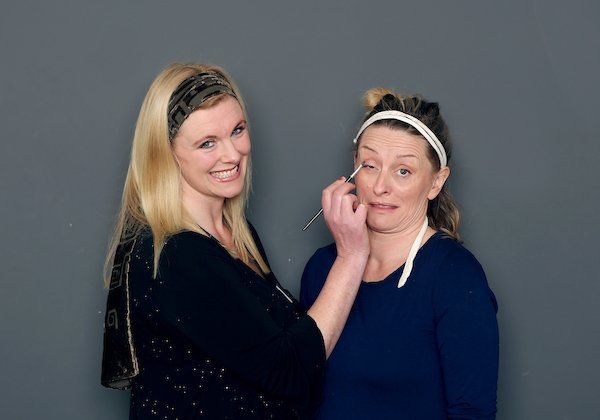
If you’ve yet to watch one of the DirtBirds’ sketches or catch one of their live shows, well, I’m not sure what you’re waiting for… The pair have been selling out venues across the country for the last three years with their unique comedy act, turning the ordinary lives of Irish women of just about every nationality, social class and county into something worth giggling about. And now they’ve taken their writing from the stage and screen and packaged it neatly into a new book, which is set to stand out on the shelves of your local bookshop. For those who don’t yet know them, the DirtBirds are Sue Collins and Sinead Culbert – two Irish women, both parents, who’ve worked in comedy for many years, doing stand-up and writing, whether for the stage or screen. I’ll pause here for a moment to confess that I’ve personally known Sinead for six years now. Always one to bring laughter to a dinner table full of friends, she’s a natural in her field. But even I was taken aback when I first saw her perform on stage. It takes a certain level of natural talent, honed to perfection over a long career full of hard graft, to be able to make an audience laugh the way I saw the people all around me do. And her friend and colleague Sue is very much her equal in that regard. The chemistry between them adds that extra something special to their act. After watching them on stage and online, I began to wonder how it all started. “I was doing stand-up, and writing comedy,” says Sinead, “and Sue, who used to be part of [Irish comedy trio] The Nualas, was doing character comedy and stand-up. We were both gigging in the same comedy club one night, and a couple of weeks later, somebody emailed me a review of that very show. The reviewer was a woman and she said her two favourite acts that night were mine and Sue’s, and she commented on how relatable the comedy was that we had both done. So that gave me an idea, and I rang Sue and asked if she’d want to write comedy with me, as I had an idea for a sitcom.” That was not only the start of Sinead and Sue’s working relationship, but a solid friendship and a match made somewhere special, if not in heaven. “We got on very well from the start. Now, Sue’s side of the story is that I stalked her,” laughs Sinead. “We worked on that sitcom together and BBC Three picked it up. It was called DirtBirds . It was very close to getting made, but there was a change in the commissioning editor, and so it got shelved, but we had all this material, and had done three years of development on it, which was amazing – it was like comedy bootcamp; we had to have a well-crafted joke every 30 seconds, or it was no good, so it was an amazing experience for us. And then we had all this material and all these characters and nowhere to put them. Then my husband and my sister and Sue’s friends all suggested we put them online. We put one sketch up and were shocked by the reaction. People just thought it was very funny. And then we put the beauty bloggers from Dundalk – Dee and Andrea – online, and that went completely viral; I think there were like 70,000 views in a day or something, which for us was incredible, and then it just grew from there. The feedback we kept getting was just how relatable it is, that people can really see themselves in the stuff we do.” Taking it literally to the next stage “We were on a radio show on LMFM, and the DJ asked, ‘So, when are you going to do the live show?’ So we started writing our first show, which was DirtBirds Live. We had no idea how it would sell, but we put it on in An Táin in Dundalk, which is a 300-seater venue, and it completely sold out.” All the DirtBirds shows have been hugely successful from the start, with predominantly (but not exclusively) women in the audience aged anywhere from 20 to 85, illustrating just how relatable the comedy is to Irish females today, whatever their age. “There are more and more men coming to the show, which is great. For so long, we’ve been listening to men talk about their lives; or when they spoke about women, whether they were talking about their marriage or relationships, it was funny and may have been somewhat accurate, but it was always the male perspective. DirtBirds was women up on stage, talking about being married or in relationships, having kids, and living ordinary lives with ordinary struggles, but in a funny way.” The duo’s second show, the Self-Help Tour, was even more successful as word spread between friends, sisters, daughters and mothers about just how funny their shows were. The pair became so busy that Sinead had to finally quit the day job to focus all her time on writing and performing, and Sue continued to juggle her own projects around their hectic schedule. Oh, and each of them is a busy working mother – Sinead is mum to Sophia (11) and Leon (seven), while Sue is a mother to two teenage boys – Vivian (14) and Milo (13) – and 11-year-old twins, Seanie and Lily. Any working parent will know the struggles of juggling work, childcare, and chauffeuring kids to and from activities. Add touring the country, working late nights gigging and early mornings writing before school-runs, and there’s little time for much else, but these two don’t seem to be ready to stop anytime soon. The book Which brings me to the pair’s new book, DirtBirds’ Self-Help Guide , which has just hit bookstores. Think of it as the light relief we all need in a world filled with anxiety, rage, sadness and despair. The first chapter, entitled “Rising Above the Crap – The New You” should give you a hint at the contents, and you’ll just have to take my word for it: this is a book that belongs on your Christmas shopping list for that friend who’s constantly stressed out and needs a good giggle. It’s even the perfect size for her handbag. So how did Sinead and Sue go from writing stand-up to writing a tome? “We were approached by Ciara Considine of Hachette Ireland, who had seen our shows and thought there was a market for it. It made so much sense because that’s what we do – we write comedy! It’s a parody of a self-help book, and the antidote to this Insta-perfect life we’re all supposed to be living. We joke about the crap advice you’re given as a parent, the myths about perfection, which doesn’t exist. It was a really enjoyable process. Parenting is a struggle, and we’re trying to say, ‘You’re not on your own – we’re all in it together, and it’s tough. And it’s time we laugh about it and just have fun with it. That’s what life is. I think the pressure on women is enormous now – you’re supposed to have the BMI of Elle Macpherson, the patience of Mother Teresa, the arse of Jennifer Lopez, and a glittering career, and it’s just impossible! So we talk about how parenting is a pain in the arse – people don’t feel comfortable saying that because it makes them feel guilty, but we love our children; parenting is very rewarding, but it’s tough. And we also talk about fitness tips – how to love your muffin top. The constant struggle women have with dieting – you try desperately to lose those four pounds and then you go out one night and put it all back on going to McDonald’s on the way home. I think we need to give ourselves a break. We wrote one sketch on how to put your make-up on when you’re driving a car, as there’s just no spare time in a woman’s life these days.” Feast or famine Speaking of no spare time… How on earth do two busy working mothers manage to fit writing a book into an already extremely busy schedule of shows, sketch writing, and school-runs? “We wrote this book over the phone,” Sinead says, deadpan – she’s not joking this time. “We would get up at six o’clock in the morning. Sue would be in her house in Dublin 8 with her four kids, and I’d be in my house in Lusk with my two, before we got them ready for school. A lot of the content was inspired by what was going on in our own lives at that particular time, as women trying to juggle everything. We generally aim to write a sketch every week, but we have to have one every two weeks anyway. First you have to write it, then you have to film it, and then edit. And then we’re gigging every weekend, and working on writing the next show, which will hopefully be ready in the new year. We’re very lucky – there just seems to be a real need for women to go out and have a laugh at their own lives. We’ve heard people say things like, ‘I just watched two hours of my life on stage.’” If you haven’t seen DirtBirds on stage yet, I highly recommend you get your favourite gal pals and book tickets for one of their shows ASAP. Their first Vicar Street gig is on Friday, January 24 (might I suggest you get tickets for a special friend and hide them inside a copy of the new book?). Show number three is currently being written, and the theme is No Filters. “We’re halfway through writing that, and that’s always the joy. It’s literally us laughing at perfection, so we’re very excited about that. We also want to write a sitcom. That’s the dream. We’ve started writing a script, but it’s at the very early stages.” The real highlight of their job, Sinead says, is making a difference to audience members. “I got a message recently from a girl who was very sick, and she was allowed to come and see us. She said it helped her enormously to come out and laugh solidly for two hours. For us, that’s the job done. That’s really what’s important.” DirtBirds’ Self-Help Guide by Sue Collins and Sinead Culbert (Hachette Ireland, approx €13) is out now. Illustrated by Ciara Kenny. For details on the DirtBirds’ live shows, visit dirtbirds.net . Follow them on Instagram @dirt_birds_productions Facebook @dirtbirdsproductions Twitter @DirtBirds_Irl Haven't seen one of their sketches yet? Watch on YouTube here .
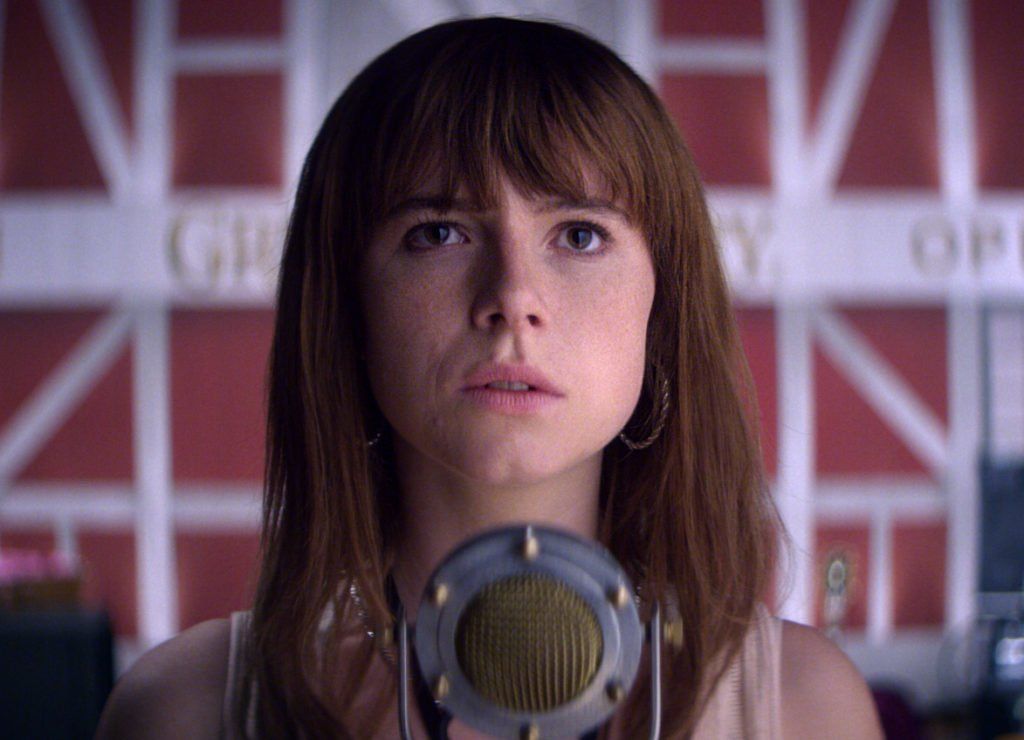
Irish actress Jessie Buckley has been working solidly for the last 11 years, but her 2019 film, Wild Rose , is sure to send her career into the stratosphere. Born in Kerry, Jessie Buckley first burst onto our TV screens in the Andrew Lloyd-Webber West End talent contest I’d Do Anything when she was 18. Today, she’s an acclaimed actress with a CV boasting award-winning films and television series, including Beast and BBC series War & Peace . April 2019 saw her showcase her vocal and acting talents in a starring role that is sure to not only move audiences, but have viewers sitting up and taking serious notice. I caught up with the Irish actress in Dublin to talk about Wild Rose , a film that sees Buckley play a single Glaswegian mum freshly released from prison who has a passion for country music and notable talent for singing, but two children who depend on her, and her dreams of going to Nashville to become a country singer are at war with her emotional ties to home. Watch my one-to-one interview with Buckley for IMAGE.ie here: https://youtu.be/G3z93xNSGK4 Wild Rose , cert 15a, directed by Tom Harper and written by Nicole Taylor and starring Jessie Buckley, Julie Walters and Sophie Okonedo, hit Irish cinemas on April 12, 2019.
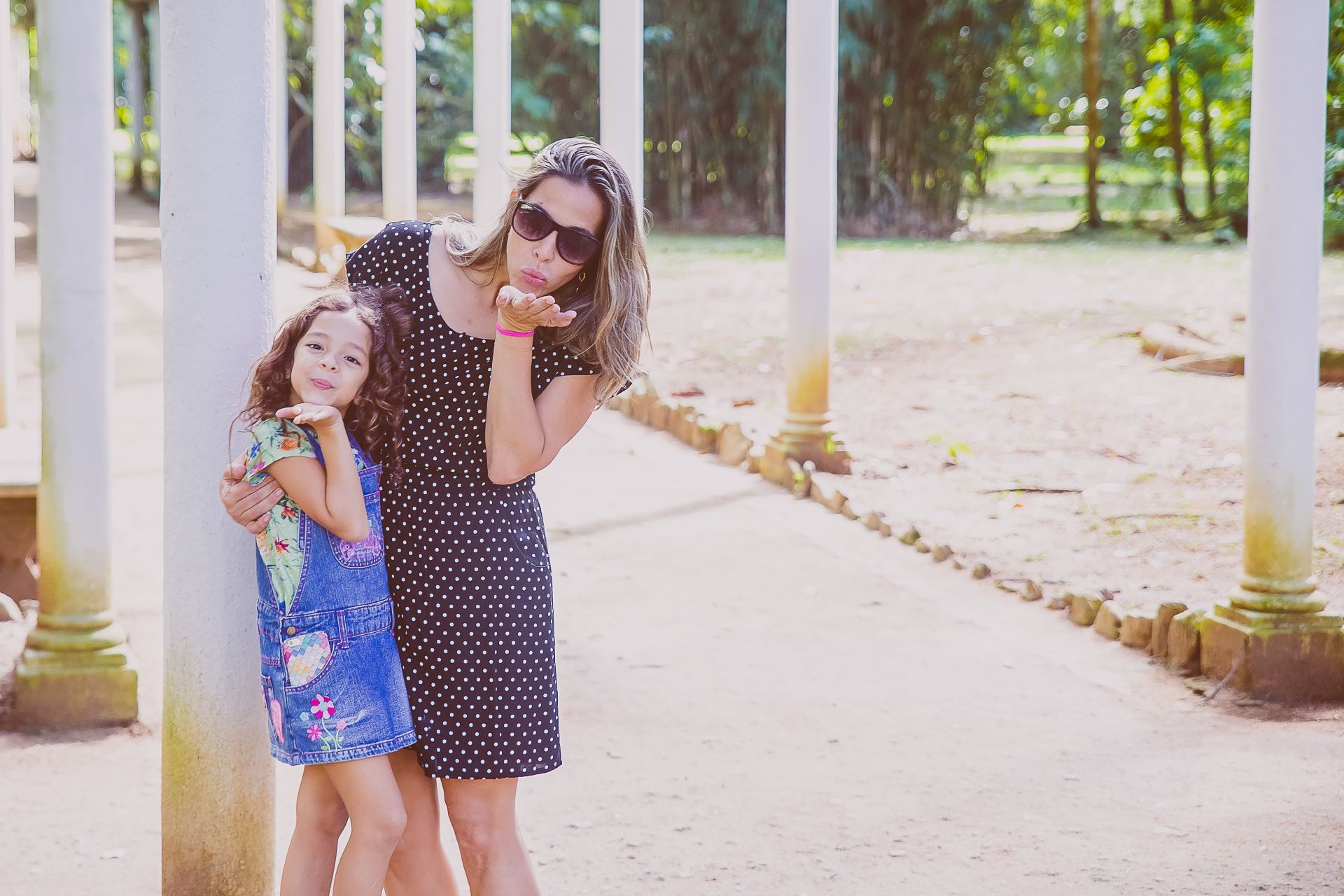
As the HSE embarks on another information campaign on the HPV vaccine, I’d like to share my thoughts on the issue. Please bear with me, as my original opinions on the matter stemmed from innocence, lack of the full picture, and the vulnerability most mothers experience at one time or another. For those who don’t understand why anyone would not vaccinate their children against the HPV virus, I’d like to give you a glimpse as to how I was introduced to the vaccine. It was the spring of 2009. My daughter was just a few months old. Tiny, trusting, and whose future was – at least for the next 18 years – resting in my hands. (Why on earth would anyone give me this level of responsibility?) I had only just joined Facebook earlier that year. A fellow mum friend in America shared a video where a young female doctor, claiming to have had an initial part in the “cervical cancer vaccine” now being extensively rolled out in the US, said she had serious concerns about the effects the vaccine was having on some young girls, and that this issue was being ignored in favour of profit. She claimed it would soon be “enforced” to all girls aged 12 in America – that if they refused to accept the jab, they would not be allowed to attend school until the vaccine was given (this in itself got me to sit up and listen intently). She explained that there had been hundreds of cases of young girls across the country and in Canada and other nations where the vaccine was being rolled out, where they experienced “severe” side effects – not just dizziness post-jab, but passing out, long-term fatigue, seizures and even death in a few rare cases. It scared the bejesus out of me. And god help me, I didn’t fact check. I didn’t look more deeply into the source. And yes, I shared the video, with a comment to the effect of “no way am I letting this NEAR my daughter”. Fast forward to 2010 and the vaccine was finally being rolled out in Ireland. I had almost forgotten about that video, until the Regret movement started getting airtime just a few years later – on radio programmes, in the papers, and even right there in the middle of a Vincent Browne People’s Debate I attended in Malahide on the issues that matter to constituents ahead of the 2016 general election. A girl and her mother stood up and asked what the candidates proposed to do about people like them, affected by the HPV vaccine. Oh god, there’s a real life person. So yes, once again, I vowed to tick the No box on the leaflet when the time came that my daughter would come home from school in her first term at secondary school. Now, for those who are still feeling like they do not intend to get their daughter vaccinated, I hope you will continue reading, because my feelings on the issue have changed rather drastically in a very short time. Last year, as the uptake of the vaccine dropped dramatically, the HSE rolled out a campaign encouraging parents to get their daughters vaccinated. I didn’t particularly like the tone of the radio ads. They struck me as abrupt, and a little insensitive, not addressing the genuine concerns parents seemed to have about the vaccine (the vaccine uptake dropped significantly in 2016, so regardless as to the validity of the sources these parents must have been listening to, should that not be counteracted with a full-on attack of helpful mass media myth-busting, rather than a few 30-second radio ads?). Medical professionals and scientists will sometimes (not always, mind) suggest that it is their job to fully test the vaccines and get them to the public. It’s their job to save lives. It’s not their job to pander to the uninformed, to answer to fake news or popular myth. And they may be right, but someone needs to take the time to fight back against the anti-vaxxers who are poisoning the information pool. As far as I knew, there were parents who genuinely felt their daughters received serious adverse effects from the vaccine, and in their minds, their daughters would have been better off if they hadn’t ticked the Yes box. And on the back of this, there were hundreds more parents unsure what to do, not wanting to make the wrong decision. They were worried. That, surely, deserved a greater explanation. Some serious airtime. I must have missed it because when I made the mistake of Tweeting last October that I felt there deserved a balanced debate, perhaps on RTÉ’s Prime Time, that would address the concerns parents had and help break down the myths and inform them of all the facts, while relieving the worry they may carry, I received a wave of one-line responses, mostly from angry, frustrated science-buffs who thought I was being ignorant. One Twitter user, however, was actually extremely helpful. She sent me a YouTube link to – you guessed it – an RTÉ Prime Time episode which aired in November 2016 that addressed this very issue (as I said, I missed it). And another sent me links to articles she felt did the trick. I read them, and responded with thanks for her help and interest in enlightening me to the full picture. Clincher number one in changing my mind: The vaccine doesn’t just prevent cervical cancer. Around 80% of sexually active people (both men and women) are infected with HPV at some point in their lives; most never know they have the virus. Research illustrates that the vaccine may sharply reduce oral HPV infections that are a major risk factor for oropharyngeal cancer – a type of head and neck cancer. HPV has been strongly linked to a number of other cancers in men and women including cancers of the anus, mouth and throat, vulva, vagina and penis. I suppose innocently I thought my daughter’s likelihood of getting a particular form of cancer (cervical) had to be weighed against the suggested risks. But given what this vaccine can in fact do, the benefits do surely outweigh the potential side effects suggested by some (a link for which still has not be proven). According to the HSE’s website, 300 Irish women get cervical cancer every year, 90 of whom will die from the illness ( http://www.hse.ie/eng/health/Immunisation/pubinfo/schoolprog/HPV/ ). And one of the first countries to introduce the vaccine, Australia (who introduced it in 2007) has seen a decrease of more than 50% in rates of pre-cancer of the cervix in the last ten years. Clincher number two: The people behind the anti-HPV vaccine movement worldwide – and videos like the one I saw back in 2009 – are most often religious conservatives, pushing the abstinence argument over any scientific, medical address to real health issues. They’re the ones harping on that the vaccine will “only make girls have more sex” (an argument I always found ridiculous – what the hell does the bishop or anyone else have to do with this vaccine? And besides, you can get the virus from just one sexual partner, so there goes that case). Clincher number three: Since it was rolled out, more than 220,000 Irish girls have safely received the vaccine; and more than 200 million doses of the vaccine have been administered around the world. This puts in perspective the few cases of girls who’ve experienced symptoms like chronic fatigue or epileptic seizures around the time they received the vaccine. This is the one answer to the myths that has been shouted about since this debate began – there has never been proof that these girls actually developed these symptoms as a result of the vaccine. Cases like these have been investigated and followed up on. And still, no link has been proven. As it happens, issues like chronic fatigue are quite common in adolescent or teenage girls, and the vaccine has shown to be more effective when administered in young girls aged around 12 or 13, so coincidence plays its natural part here, as does family history and pre-existing conditions. So now, I will, when the time comes, tick that Yes box. No decision like this is ever easy. I always vaccinated my children at every stage and for every disease I was recommended to. And yes, I closed my eyes and wished the day would hurry up and pass so that I’d be able to rest easy, knowing I did the right thing, and my child was okay. This time will be no different – only I won’t be there to hold her hand. She’ll have to do this alone, in school, with only the administrator for company. I’ll probably be at my desk saying a silent prayer for her though. There only remains one outstanding issue now for me – as countries like Australia (which, in 2013, became the first to implement an HPV vaccine programme for all boys aged 12/13), Austria, Canada, and Switzerland are vaccinating boys, when might we see the HPV vaccine rolled out for the other half of 12-year-olds here? (My son starts secondary school in the autumn, so the HSE better hurry up!) I think our boys deserve the same protection as girls (the vaccine can prevent penile, anal and head and neck cancers, as well as genital warts). One last thing. I, like most parents today, am a busy working mother with a lot on her plate, and am trying to do my best. So I would like to ask the medical community to please understand, and help the rest of us feel a little better about the decisions we have to make every day. Listen, have compassion, and calmly try and explain your side or direct us to someone else who can. Especially today, we have a LOT of information coming at us from all sides, about everything. We’re the too-much-information generation. I have pregnant friends and family members who aren’t allowed probably double what I wasn’t allowed when I was last pregnant nine years ago. God knows the decisions they’ll have to make in another decade. So as the new information campaign goes out to the public, I’d like to challenge all of you to book your smear test (I get one every 18 months – one free, one I pay for – it’s so simple; the hardest thing is to just find time in the diary, but if you can make time for coffee with a friend, or a trip to the nail salon, really you can make time for this), and get informed on the HPV vaccine – whether you have a daughter or not, you can still share your opinion and affect someone else’s decision, and you want to be adequately prepared with the right information when that opportunity arises. Here are just a few starting points… http://www.hse.ie/eng/health/Immunisation/pubinfo/schoolprog/HPV/hpv-vaccine-facts/ http://www.hpvvaccine.org.au/parents/myths-and-facts-about-hpv-and-the-vaccine.aspx https://www.ncri.ie/news/article/hpv-associated-cancers-ireland-report-national-cancer-registry https://www.theguardian.com/science/blog/2016/jan/11/why-is-there-opposition-hpv-vaccine-cervical-cancer And here’s the RTÉ Prime Time episode on the issue: https://www.youtube.com/watch?v=eMhJ9ksTI70&feature=emb_title If you haven’t yet had a smear test, you can register for your free one at https://www.cervicalcheck.ie . Photo by Patricia Prudente on Unsplash
